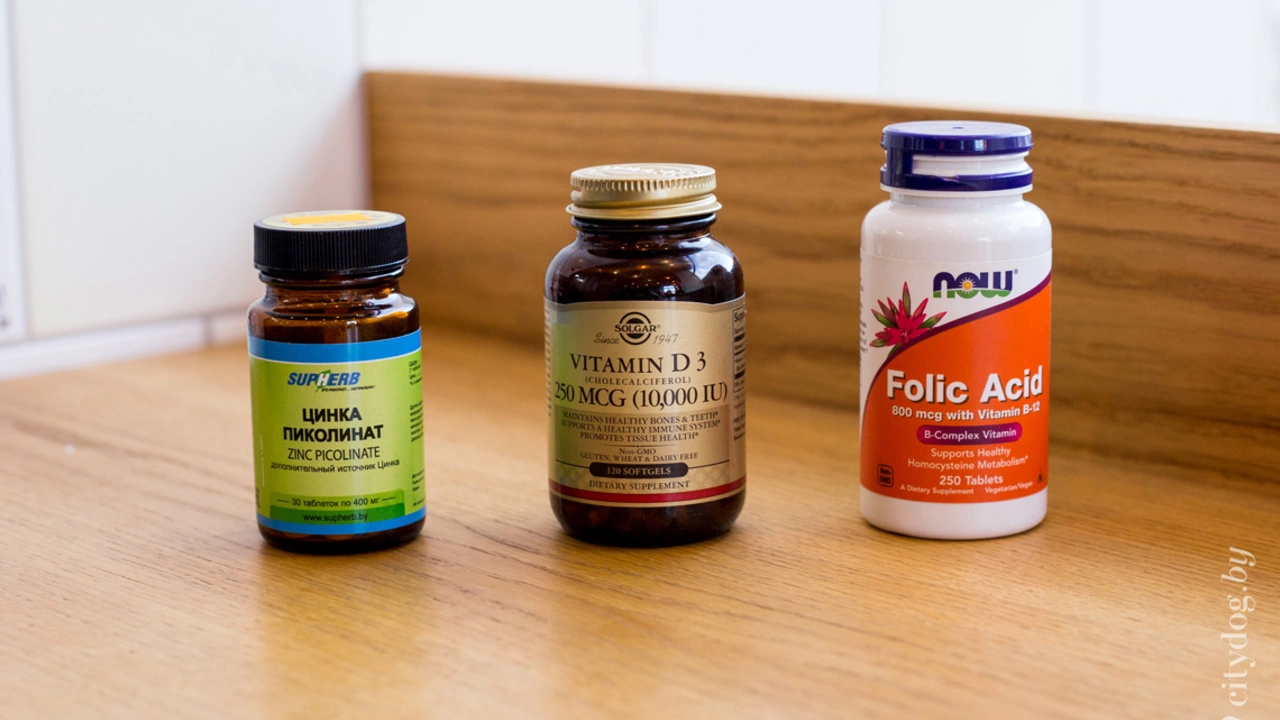Understanding Sulfasalazine
In our first section, we'll delve into what Sulfasalazine is and its primary uses. Sulfasalazine is a medication often prescribed to patients with inflammatory disorders such as rheumatoid arthritis and ulcerative colitis. It works by reducing inflammation and swelling in the body. This medication is part of a class of drugs known as anti-rheumatics and anti-inflammatories. It's been used for years to manage and treat these conditions, however, like all medications, it can have side effects and interactions with other substances, such as folic acid.
The Role of Folic Acid
Next, we'll look at folic acid, an essential nutrient that plays a crucial role in our bodies. Folic acid, or vitamin B9, is vital for the production of red blood cells and for the synthesis of DNA. It also helps with tissue growth and cell function. Moreover, folic acid is incredibly important during periods of rapid growth such as pregnancy and infancy. Deficiency of this essential nutrient can lead to several health problems, including anemia and birth defects in pregnant women.
How Sulfasalazine Affects Folic Acid
Our understanding of the interaction between sulfasalazine and folic acid is crucial. Research shows that long-term use of sulfasalazine can lead to a decrease in folic acid levels in the body. This is because sulfasalazine can interfere with the absorption and metabolism of folic acid, leading to a deficiency. This deficiency can then result in various health issues, particularly in pregnant women who require higher levels of folic acid.
Recognizing Folic Acid Deficiency Symptoms
It's important to recognize the symptoms of folic acid deficiency. These may include fatigue, weakness, pale skin, shortness of breath, irritability, and a swollen tongue. In pregnant women, a deficiency can lead to neural tube defects in the baby. If you're taking sulfasalazine and experience any of these symptoms, it's important to speak to your health care provider immediately.
Folic Acid Supplementation
One way to combat this interaction is through folic acid supplementation. If you're taking sulfasalazine, your doctor may recommend that you also take a folic acid supplement. This can help ensure that your levels remain within the normal range and prevent any potential health issues related to a deficiency. The dose will depend on various factors, including your overall health, age, and whether you're pregnant or breastfeeding.
Precautions and Considerations
There are some precautions and considerations to keep in mind when taking both sulfasalazine and folic acid. It's important to take these medications under the guidance of a healthcare provider and to have regular blood tests to monitor your folic acid levels. Also, it's crucial to notify your doctor if you're pregnant or planning to become pregnant while taking sulfasalazine.
Scientific Research on Sulfasalazine and Folic Acid
Scientific research on the interaction between sulfasalazine and folic acid has been ongoing. Studies have shown that sulfasalazine can indeed lower folic acid levels and that supplementation can help prevent deficiency. However, more research is needed to fully understand this interaction and to develop guidelines for supplementation and monitoring.
Conclusion: The Importance of Balancing Sulfasalazine and Folic Acid
In conclusion, while sulfasalazine is an effective treatment for certain inflammatory conditions, its interaction with folic acid is a concern that must be managed. Regular monitoring and potentially supplementation of folic acid are key to maintaining health while taking this medication. As always, all medication use should be discussed with a healthcare provider to ensure safety and effectiveness.


arthur ball
July 7, 2023 AT 11:48Supplementing saved me. I take 1mg daily now and I actually sleep through the night. No more brain fog. No more 'why am I crying over a commercial' moments.
Also, side note: if your doc doesn't mention it, ask. They're not always thinking about the vitamins when they're focused on the big scary disease.
Harrison Dearing
July 8, 2023 AT 01:50Next thing you know, someone's gonna start popping B12 because they heard it 'boosts energy' and then end up with neuropathy. This isn't a vitamin smoothie, folks. It's medicine. Get your labs done.
Justice Ward
July 9, 2023 AT 00:55Not just energy-my skin cleared up, my moods stabilized, even my digestion improved. It’s wild how one tiny vitamin can be the missing puzzle piece.
People treat meds like magic bullets, but sometimes the real fix is just… a little B9. Don’t ignore the small stuff.
bhuvanesh kankani
July 10, 2023 AT 20:11It is a responsibility of the medical community to educate patients. Even a simple pamphlet in local languages could save lives. This is not just science-it is compassion in practice.
maria norman
July 11, 2023 AT 22:56Brilliant. Next up: prescribing opioids and giving out aspirin for constipation. We’re not fixing the problem-we’re just slapping a Band-Aid on a gunshot wound.
Iris Schaper
July 13, 2023 AT 10:54now i take a daily tab and my brain feels like it has wifi again. weird how something so small can be so huge. also, my hair stopped falling out. who knew?
katerine rose
July 15, 2023 AT 03:58Selma Cey
July 16, 2023 AT 18:02Francis Pascoe
July 16, 2023 AT 23:22They didn’t care. I had to scream. I had to beg. I had to find this info myself on Reddit.
Now I’m on 5mg of folic acid daily. My doctor still doesn’t get it. I don’t care. I’m alive. And I’m not letting another patient go through what I did.
Richa Shukla
July 18, 2023 AT 07:46Chris Rowe
July 18, 2023 AT 19:46arthur ball
July 19, 2023 AT 09:34And if your doc says ‘it’s probably stress’? Get a second opinion. I did. And I’m still here.